Total War: 10 Easiest Factions To Play In The Grand Campaign
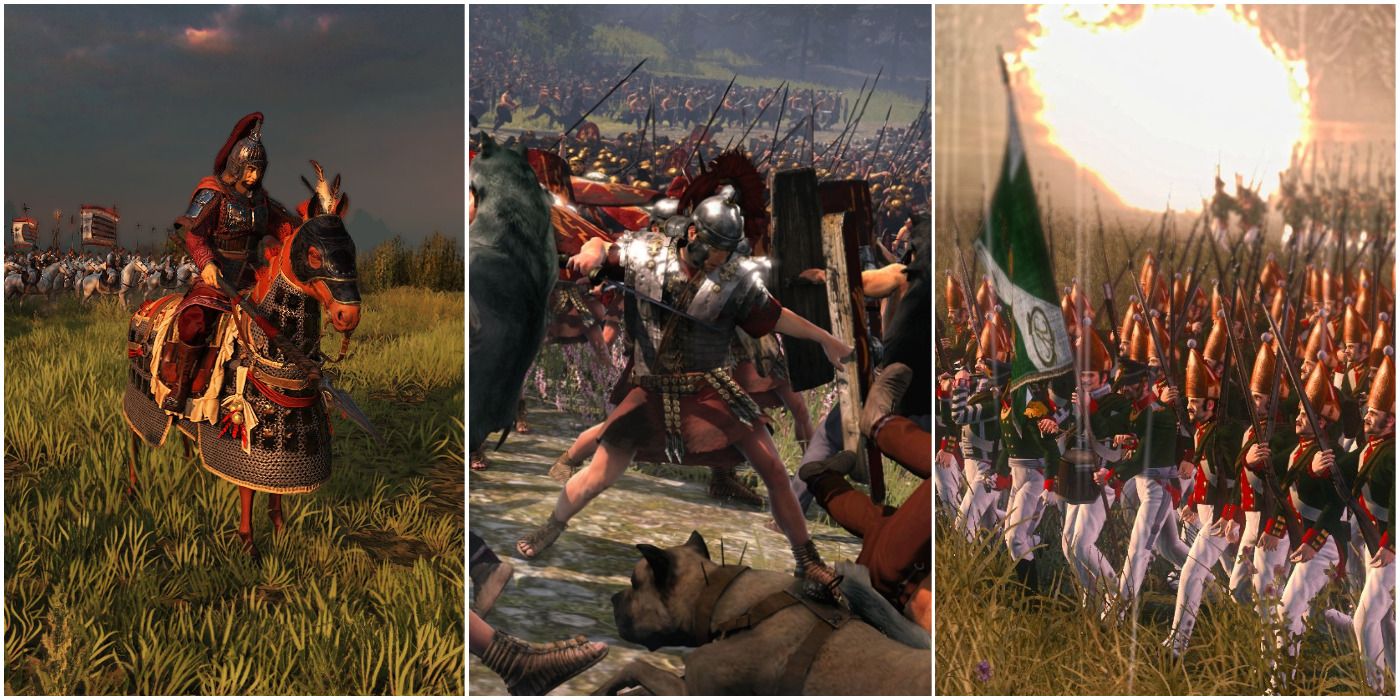
Different Total War factions bring to the table their own set of unique challenges. Many face an uphill battle right from the start. Nevertheless, every game in the series has its handful of factions that begin the proceedings from a position of strength. Beginners would be wise to choose from among these choices if playing Total War for the first time.
What makes a faction easy to play depends on the circumstances at the beginning of the game. Some may already possess a strong economy, while others can field an impressive military right from the get-go. Whatever the reasons might be, it's clear that these factions can make the Grand Campaign surprisingly easy.
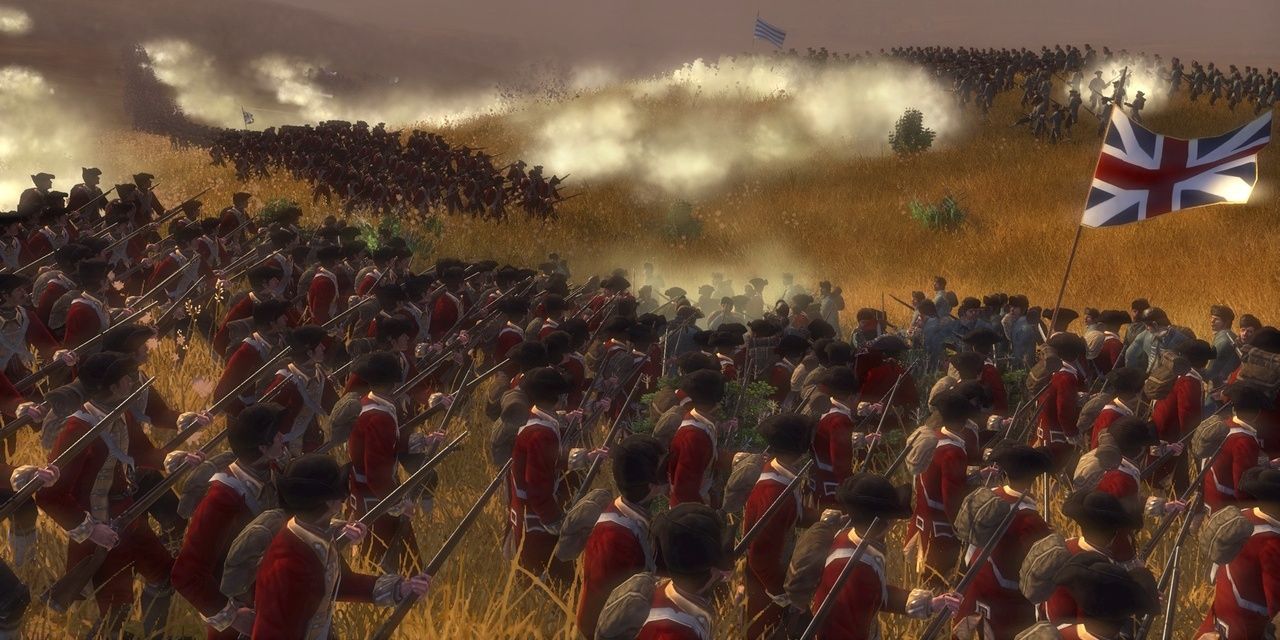
Great Britain in the 18th century was one of the world's leading superpowers. Empire: Total War reflects that situation in how Great Britain plays as a controllable faction. The country's most obvious strength lies in its geography. Amphibious landings are difficult to pull off successfully. Great Britain already has one of the best navies in the game. Foreign invasions can be crushed before they can even begin.
The British can also rely upon their burgeoning colonial empire to aid them both militarily and economically. Overall, there's very little sense of urgency when playing as Great Britain. They can take whatever time is necessary to build up and strengthen their already impressive forces.

Egypt is one of the playable Hellenistic kingdoms that was born from Alexander the Great's conquests. As an established political entity, Egypt already starts the game with a few regions under its belt. In addition, those same regions are highly valuable due to the abundance of food and wealth they provide.
As a Greek state, Egypt can rely upon a core of highly trained military units, supplemented by auxiliaries. New avenues of conquest are available to the west or the east. A player can take advantage of Carthage's eventual war with Rome. The lands of the tottering Seleucid Empire are another potential option too.

Wars that are not fought effectively can easily lead to defeat for the player's faction in Total War: Shogun 2. For beginners, the Shimazu clan is a terrific choice. Geographically, the Shimazu start the game in a highly advantageous position in the southwest corner of the island. This makes the defense of the home territory an easier proposition compared to other factions.
Militarily, the Shimazu's strength lies in their superior katana samurai units. Combined with a blacksmith workshop that's already present, these units can be upgraded even further, amplifying their deadliness. With only one initial enemy that needs to be defeated, it's up to the player how they want to expand from there.

The French Empire may have Napoleon Bonaparte leading them, but Russia has geography on its side. The Russians already possess a huge chunk of the eastern map at the start of the game, so worrying about flank attacks is a non-factor. Plus, it will take ages before a French army reaches any of Russia's vital cities.
With time on the player's side, Russia's military can be built up into something fearsome. Multiple targets exist for an attack. The player can wheel south and strike the Ottoman Empire. Or, the player may decide to head directly west in the direction of Poland. Once the Russian juggernaut starts moving, it's hard to stop.

Like other nations on this list, the Turks also find themselves in an advantageous starting position. With no real enemies to their backs, the Turks can focus on their front with all their available might. The most tempting target is the weakened Byzantine Empire and its capital of Constantinople.
Unlike Crusades, the Turks can utilize Jihads against both Christian and Muslim factions. Their roster of horse archers makes the Turks a devastating force on the battlefield, whether against the Byzantines or the Egyptians to the south. Capturing the highly valuable Jerusalem is another tempting alternative target.
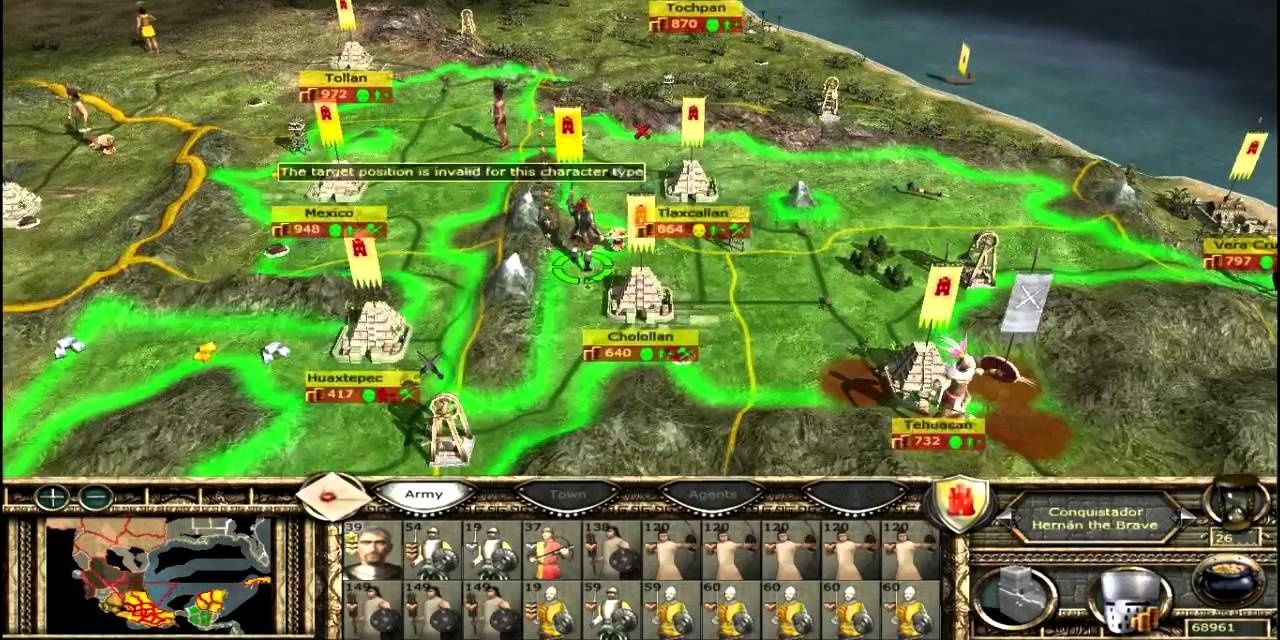
At first glance, it may seem like New Spain is in an unenviable position in the New World. It's actually quite the opposite. From their secure base in Cuba, the Spaniards have the luxury of choosing when and where to attack first. The Europeans more than make up for their inferior numbers with their superior technology.
Although the armies of the Native American polities are much vaster, New Spain can pack quite a punch through the use of gunpowder, armor, and horses. They can also potentially rely on other native allies to aid them in their conquest.
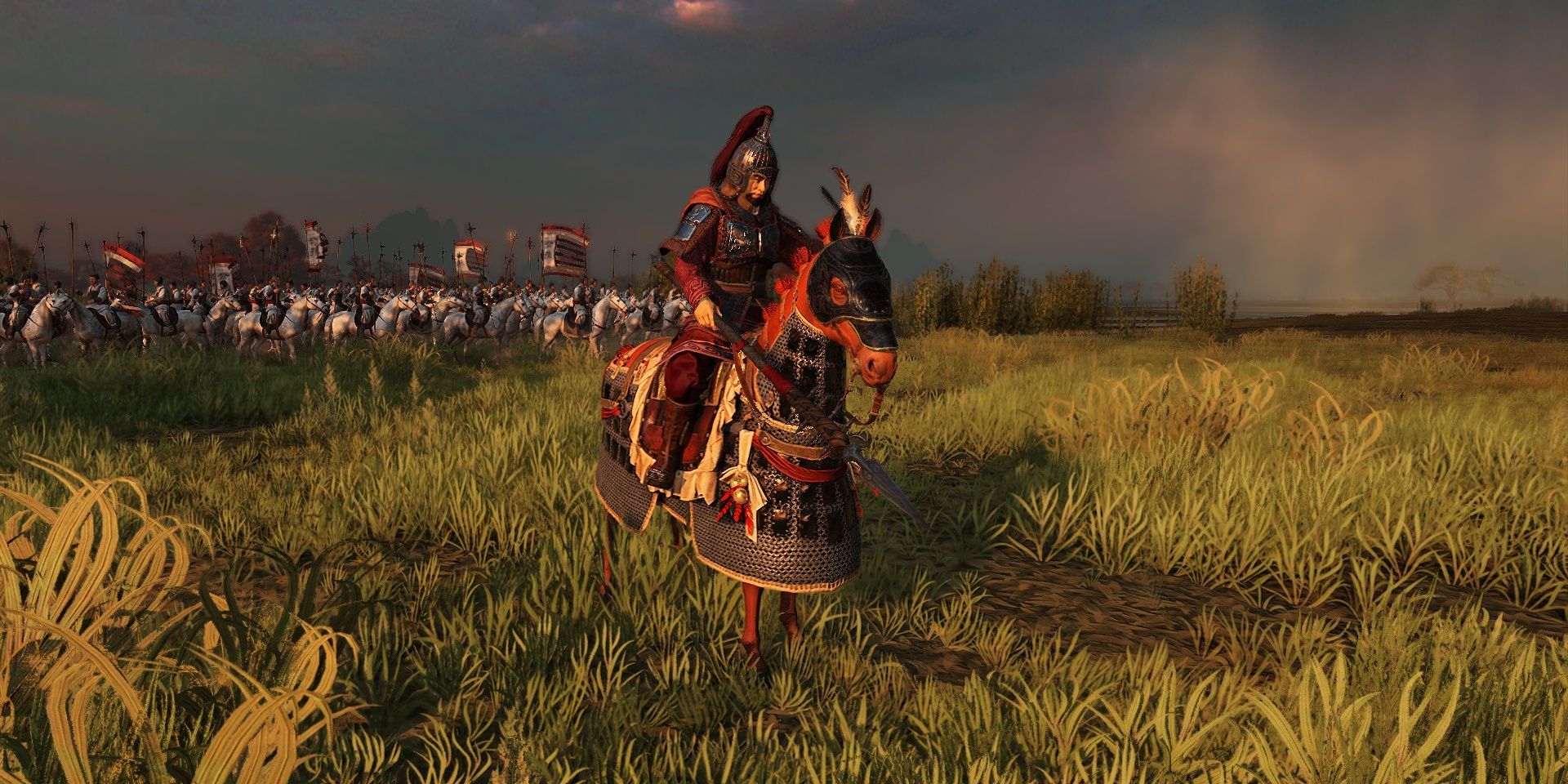
Maintaining the fruits of a successful conquest isn't an easy endeavor in Total War: Three Kingdoms. China's natural geography invites unexpected enemy attacks on the player's flanks and rear. Gongsun Zan, however, has a less difficult time than most of his peers.
Zan's stronghold in the north of China makes his domain highly defensible. His attributes, one of which grants a 50% bonus to reinforcement range, are quite handy when on the defensive. Gongsun Zan's armies are better able to fight as a single entity than his neighbors as a result. His cavalry units are excellent and can make short work of an enemy when utilized properly.
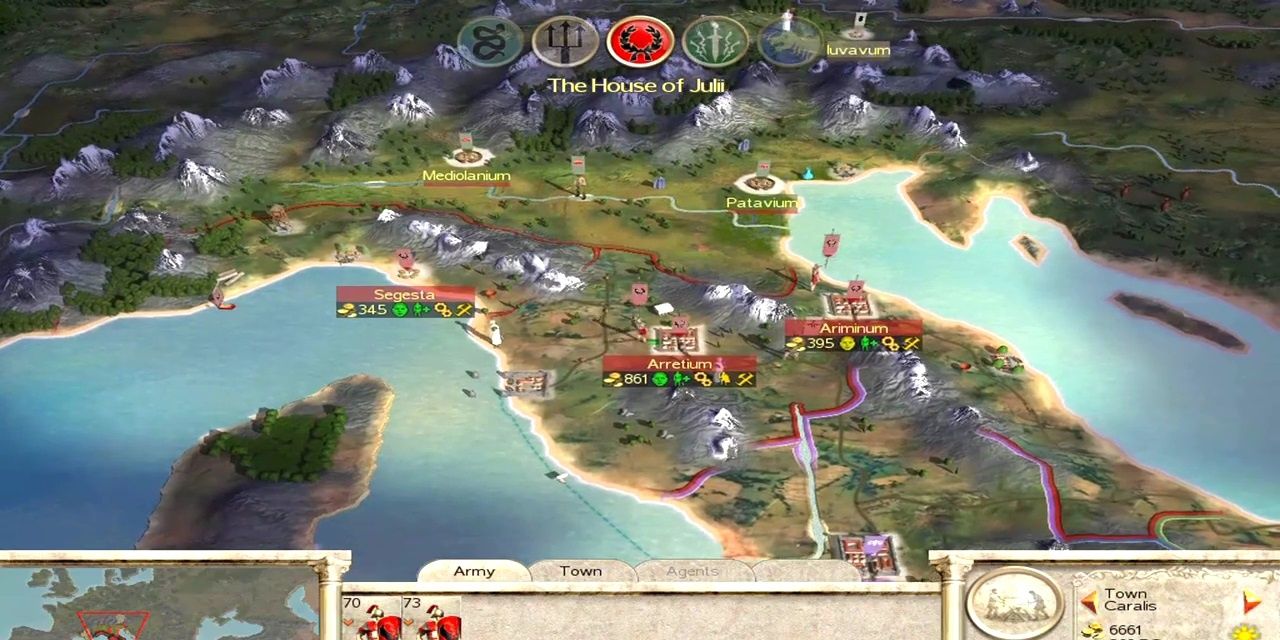
The three playable factions that comprise the Roman Republic are all quite powerful since they share the same great units. The Senate generally tends to guide each faction toward their own unique avenues of conquest. For the Julii, those conquests will be directed toward the north of Rome's borders.
Although the provinces to the north aren't as rich as those in the direction of Asia and Carthage, they don't pose as much of a challenge. Greek and Carthaginian units can sometimes be difficult to overcome, but barbarian armies typically have a tougher time standing against the might of Roman legionaries. So, from a military standpoint, the Julii are in a better position to stomp their enemies into the dirt when compared to the Scipii and the Brutii.
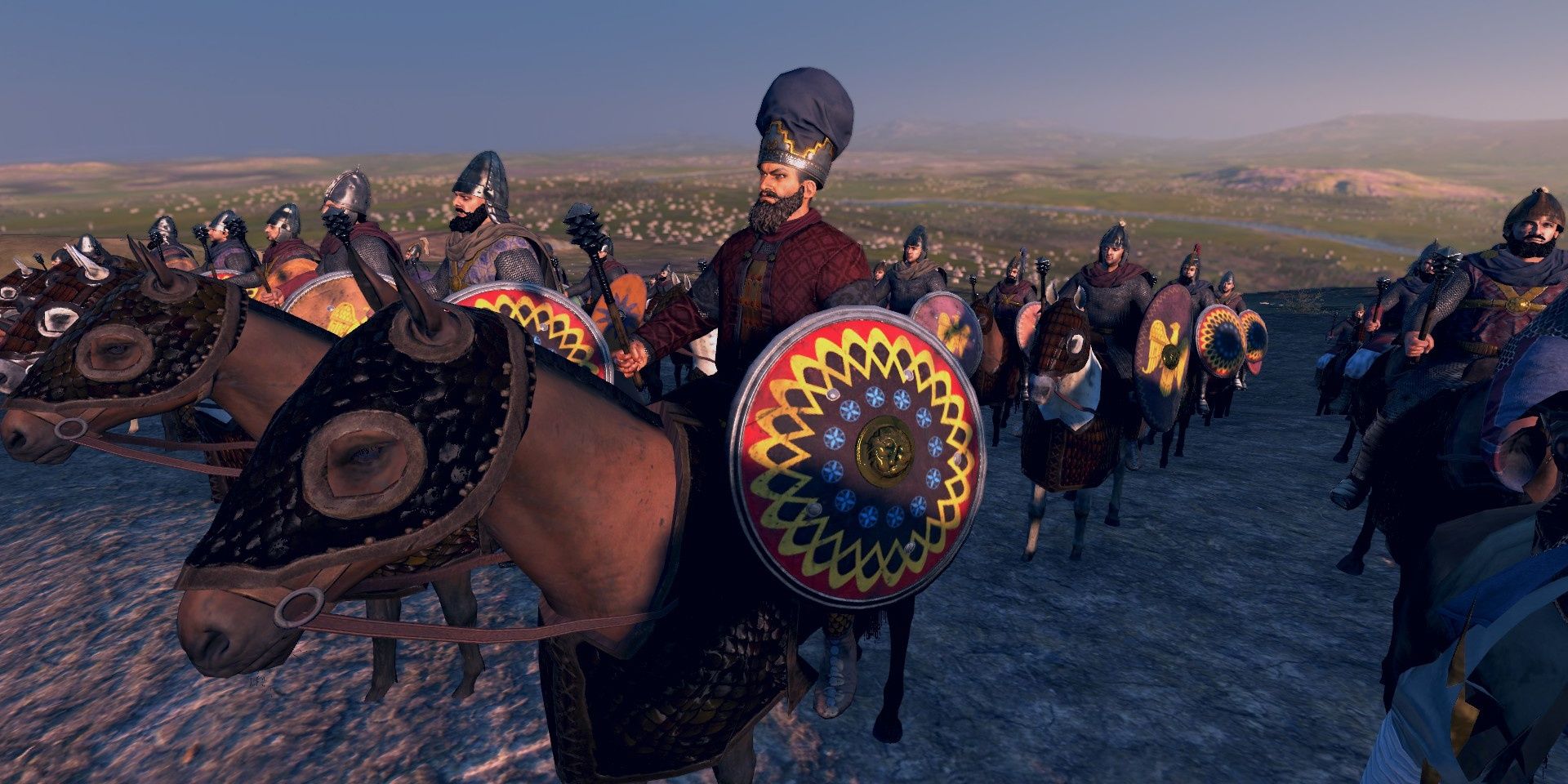
The Sassanid Empire is the powerhouse of Persia and the most direct rival to the Eastern Roman Empire. One of the Sassanid Empire's greatest strengths is its well-oiled bureaucracy. They receive a bonus to their sanitation rating for every province capital they control. The Sassanids also receive a hefty tributary bonus from their client states.
As such, the Sassanid Empire's economy is quite robust. Although they have many potential rivals, the Persians aren't in any immediate danger like the Roman factions at the start of the game. This gives them and their puppet states time to build up militarily for the inevitable showdown with the ERE or the White Huns.

This may not come as much of a surprise, but the Romans are a hungry behemoth waiting to be unleashed in Total War: Rome II. They start the game at war with the pathetically weak Etruscan League, which can be swept aside in a few turns. After that, the only substantial threat remaining is Carthage and her allies.
The Roman faction's economy can be upgraded rather easily in the early game, which is important for maintaining at least two full-stack armies. Their heavy infantry, comprised of hastati, principes, and triarii are basically unequaled. Once Carthage is out of the way the remaining lesser factions don't have much of a chance. They can be swallowed up one by one for the rest of the campaign.

Post a Comment